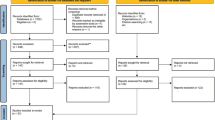Abstract
There are large differences in the frequency and types of cosmetic surgeries performed in different countries around the world. Although availability, access, cost, and affordability each play a role in the observed differences, we tested the hypothesis that sociocultural and moral values significantly influence the level of acceptance of cosmetic surgery. In 2015, we collected the views of 206 college students in an international university in Japan to compare the views of Japanese students (n = 114) towards cosmetic surgery with those of South Korean (n = 37) and Chinese (n = 55) students. There was an overall “negative” attitude towards cosmetic surgery among Japanese (63%) and Chinese students (74%), compared with a “positive” attitude among Korean students (72%), that was statistically significant (chi-square value of 19.477). A qualitative analysis of the students’ comments suggests that the negative view of Japanese students towards cosmetic surgery was associated with the values of respect to parents, naturalness, concern for safety and health (rather than appearance), modesty, and preserving one’s individuality. On the other hand, Korean students mentioned the values of beauty, autonomy, utility (job opportunities, social relations), popularity, and perceived safety as reasons for their positive attitude towards cosmetic surgery. The negative view of Chinese students was mainly associated with the value of respect to parents and preserving the inherited characteristics as well as avoiding the perceived risk of surgical procedures. Interestingly, students’ gender had no statistically significant influence on their positive/negative attitude and/or acceptance of cosmetic surgery (P value >0.05). The finding of significant differences in sociocultural and moral values for and against cosmetic surgery suggests that cultural differences may explain the varying attitudes and thus some of the differing rates of cosmetic surgery between the countries.
Similar content being viewed by others
References
Aouizerate, B., H. Pujol, D. Grabot, M. Faytout, K. Suire, C. Braud, et al. 2003. Body dysmorphic disorder in a sample of cosmetic surgery applicants. European Psychiatry 18: 365–368.
Asian Plastic Surgery Guide. 2017. It’s Official: South Korea has the world's highest rate of cosmetic plastic surgery, but .... Available from: http://www.asianplasticsurgeryguide.com/news10-2/081003_south-korea-highest.html.
Askegaard, S., M.C. Gertsen, and R. Langer. 2002. The body consumed: Reflexivity and cosmetic surgery. Psychology & Marketing 19: 793–812.
Davis, K. 1995. Reshaping the female body: The dilemma of cosmetic surgery. New York: Routledge.
Davis, K. 2002. ‘A dubious equality’: Men, women and cosmetic surgery. Body and Society 8 (1): 49–65.
Deuchler, M. 1992. The Confucian transformation of Korea. Cambridge: Harvard University Press.
Elliott, A. 2008. Making the cut: How cosmetic surgery is transforming our lives. London: Reaktion Books.
Hoffman, D.M. 2000. Individualism and individuality in American and Japanese early education: A review and critique. American Journal of Education 108 (4): 300–317.
Holliday, R., and J. Elfving-Hwang. 2012. Gender, globalization and aesthetic surgery in South Korea. Body & Society 18 (2): 58–81.
International Society of Aesthetic Plastic Surgery. 2015. ISAPS International Survey on Aesthetic/Cosmetic Procedures Performed in 2014. Available from: http://www.isaps.org/news/isaps-global-statistics.
Ishigooka, J., M. Iwao, M. Suzuki, Y. Fukuyama, M. Murasaki, and S. Miura. 1998. Demographic features of patients seeking cosmetic surgery. Psychiatry and Clinical Neurosciences 52: 283–287.
Kaw, E. 1993. Steven Polgar Prize Essay (1991), medicalization of racial features: Asian American women and cosmetic surgery. Medical Anthropology Quarterly 7 (1): 1548–1387.
Nakamura, Y., J.B. Mulliken, and M.L. Belfer. 2000. Cross-cultural understanding of aesthetic surgery: The male cosmetic surgery patient in Japan and the USA. Aesthetic Plastic Surgery 24: 283–288.
Ramseyer, J.M. 2009. The effect of cost suppression under universal health insurance on the allocation of talent and the development of expertise: Cosmetic surgery in Japan. Journal of Law and Economics 52: 497–522.
Swami, V. 2009. Body appreciation, media influence, and weight status predict consideration of cosmetic surgery among female undergraduates. Body Image 6 (4): 315–317.
Swami, Viren, Tomas Chamorro-Premuzic, Stacey Bridges, and Adrian Furnham. 2009. Acceptance of cosmetic surgery: Personality and individual difference predictors. Body Image 6 (1): 7–13.
Swami, V., C.S. Hwang, and J. Jung. 2012. Factor structure and correlates of the acceptance of cosmetic surgery scale among South Korean university students. Journal of Aesthetic Surgery 32 (2): 220–229.
Woo, K. J. 2004. The beauty complex and the cosmetic surgery industry. Korea Journal summer 52–81.
Yu, J.Y., and T.G. Ko. 2012. A cross-cultural study of perceptions of medical tourism among Chinese, Japanese and Korean tourists in Korea. Tourism Management 33: 80–88.
Author information
Authors and Affiliations
Corresponding author
Appendix
Appendix
“Questionnaire”
This is an anonymous study to help understand the view of the youth regarding cosmetic surgery. The information will only be used for research purposes. You do not have to answer the following questions if you choose not to. Thank you for your time and consideration.
Age:
Gender:
(Please use M for male, F for female, O for other)
Nationality:
What is your view on the use of Cosmetic Surgery?
(You can use positive or negative, acceptable or not acceptable).
Please explain your view using arguments that help support your view.
(You may refer to ethical principles or values in your culture, society, religion, etc. that you are familiar with to argue for/against the use of cosmetic surgery.)
Rights and permissions
About this article
Cite this article
Ghotbi, N., Khalili, M. Cultural Values Influence the Attitude of Chinese, Japanese, and Korean College Students towards Cosmetic Surgery. ABR 9, 103–116 (2017). https://doi.org/10.1007/s41649-017-0004-1
Published:
Issue Date:
DOI: https://doi.org/10.1007/s41649-017-0004-1




